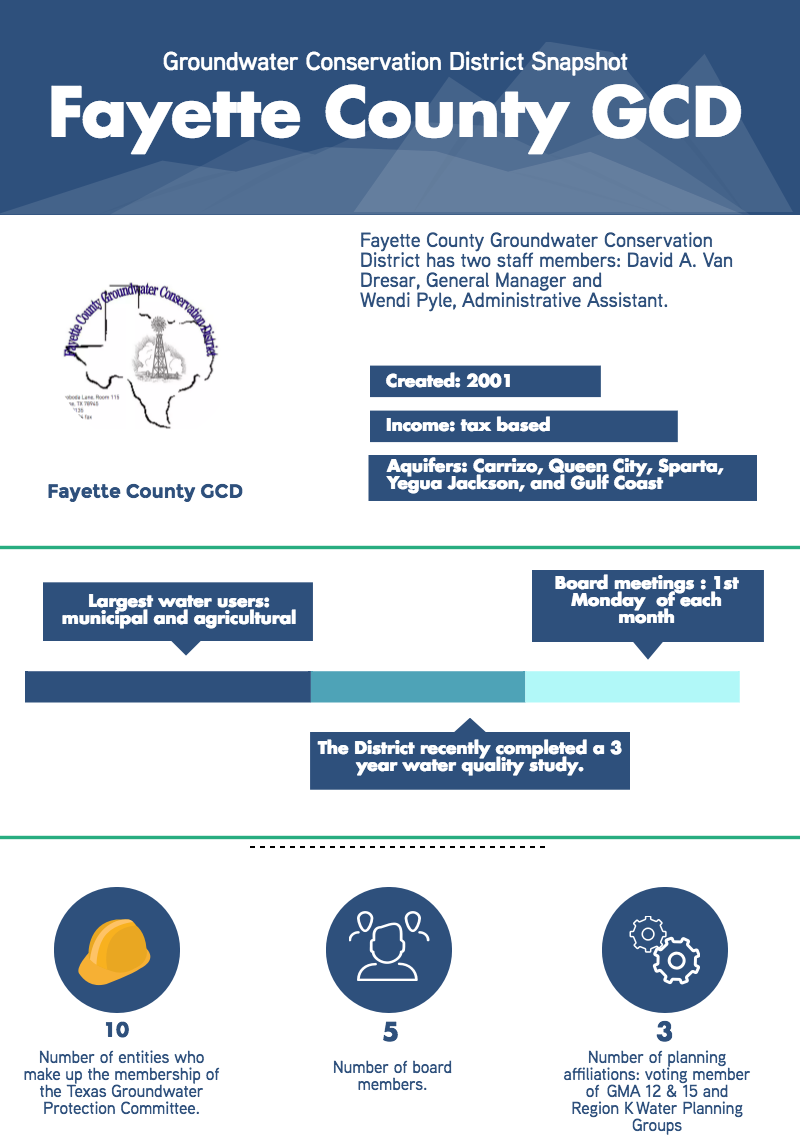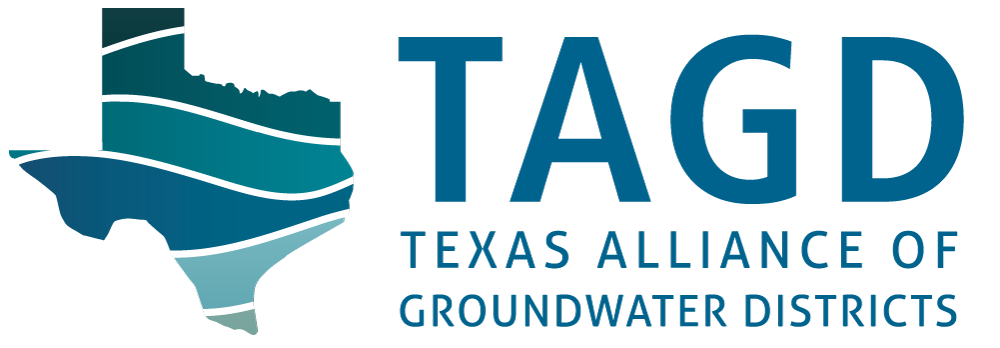Fayette County GCD

GCD Programs & Services
Water Quality Study
Fayette County GCD (FCGCD) recently completed a three-year comprehensive groundwater quality study. The last study of this nature was preformed by the Texas Water Development Board in 1965. The county-wide project involved sampling volunteer water wells to get a picture of overall groundwater quality across the District. Having completed the study, the District is waiting on results from Daniel B. Stephens to analyze the impacts. At the beginning of the study, FCGCD mapped out the fresh water and saline portions of their aquifers. Among the questions FCGCD is hoping the study will answer is whether or not there has been salt water intrusion into any of the fresh water aquifers in their area and conversely, if any parts of the District have gained fresh water.
In designing the water quality study, FCGCD’s Board decided to go beyond performing a general water quality study and to analyze the water for heavy metals and agricultural chemicals as well. The decision to perform a more comprehensive study was informed by the particular industries operating in the district, as well as citizens’ concerns expressed through public comment at FCGCD board meetings. While the study did pick up a few detections of agricultural chemicals, the levels were too low to quantify. The study was a large undertaking for the District, but one that the staff and Board felt was a necessary investment to verify the quality of the groundwater in Fayette County.
Texas Groundwater Protection Committee
The Texas State Legislature established the Texas Groundwater Protection Committee (TGPC) in 1989. The committee is charged with tracking groundwater contamination throughout the state and making recommendations to the legislature regarding groundwater protection. The committee is made of 9 state agencies and the Texas Alliance of Groundwater Districts (TAGD). FCGCD’s General Manager David Van Dresar has served as TAGDS’s representative on the committee since 2010. In addition to working to provide the Legislature with their recommendations, the TGPC also provides a platform for agencies that may not otherwise communicate, to do so.
The committee is also tasked with producing additional reports and educational materials. One of those is the annual Joint Groundwater Monitoring and Contamination Report. Mr. Van Dresar had the privilege to serve as a subject matter expert on one of the committee’s outreach materials: a guide for landowners on plugging abandoned wells.
Permitting
Any well producing 25,000 gpm or more is required to obtain a permit from FCGCD. Application forms are available at the office or on the District website and the application fee is $250.00. From start to finish the entire permitting process can last from two weeks to 45 days. All permit application for production amounts less than 200 acre feet per year are approved by the General Manager. Permit applications for greater than 200 acre feet per year must be heard by the board of directors at a duly noticed public hearing.
Challenges
Many residents of the District are unaware of the roles and responsibilities the groundwater conservation districts plays. While this poses a challenge at times, FCGCD staff also view it as an opportunity to engage in outreach and education efforts. These outreach efforts include formal presentations to different community groups and one-on-one conversations at information booths set up at various functions.
Helpful Resources
For more information, visit http://www.fayettecountygroundwater.com/.
